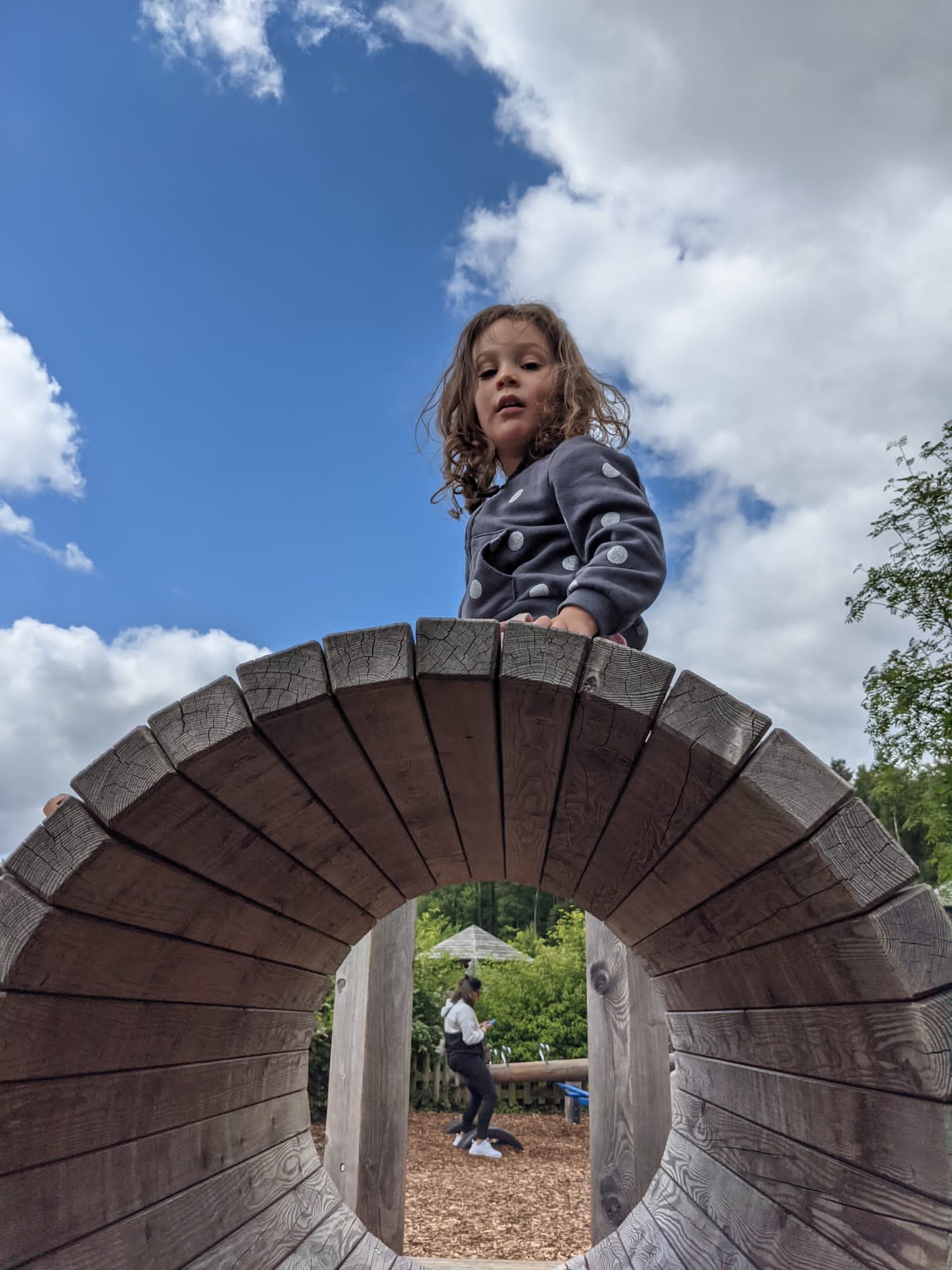Alternatives to 'be careful'
Why ‘be careful’ is holding our children back, and what you might say instead
Standing next to a tree in our local woods, the low winter sun in my eyes, frosty air turning cheeks rosy, I squint up at my daughter. One glove on, one in her teeth, with the wind in her hair. The branch is slippery and she's intent on scaling it. Scissors, rocks, knives, slippery tree branches, the same thing applies: the default response for many of us is "be careful!"
But that knee-jerk refrain, in many scenarios, is holding our children back. Don't get me wrong, I'm no stranger to that knot in the pit of the stomach when my daughter wants to climb above my head height in the playground or the woods, or insists on using the knife if she helps me make lunch, but generally I allow it, because it is the only way for her to safely learn her own boundaries and that of the environment around her. Play that welcomes risk is play that teaches our children that is ok to try and to fail and to try again. The problem with "be careful" is that it works against this by instilling the fear that bad things could happen if they attempt something new or potentially risky. It also discourages problem solving and exploration. Part of the issue is that "be careful" is non specific and is therefore unlikely to have the desired response. When we say "be careful" all the time, it can quickly lose its meaning and make kids anxious about everything instead of one or two more specific, necessary things.
Of course, some situations may genuinely require you to step in and act. There's clearly no kudos for broken legs. In this scenario I favour the use of a clear, direct term like "stop!" and have attempted to explain to my daughter that "stop means stop". Tone of voice plays a huge role, too.
If navigating the line between negligence and independence seems tough (it is tough!), the blog Backwoods Mama offers good advice. "Reflect, look at the situation with fresh eyes and ask yourself:
- What is the potential for serious harm?
- Why does this situation make me feel uncomfortable?
- What skills is my child learning right now?”
So what are the alternatives to "be careful!" when the situation requires you to help your child to problem solve? Here's what you could say instead:
- Do you feel safe / scared / stable? Etc
- Did you notice the edge / how sharp the knife is? Etc
- Try using your hands and feet
- What's your plan to get down / to the other side? Etc
- This plant / animal could hurt us. Let's use our eyes/ nose instead of touching it.
- I can't let you throw that stone / stick. Let's find something we can throw safely.
- Can you hear the strong waves / rushing water etc
- Who will be with you / be nearby / help if etc
Mollie Lloyd, is a Playhood member, UX designer and mum to a three year old and five month old.
Follow us on Insta @playhoodclub


